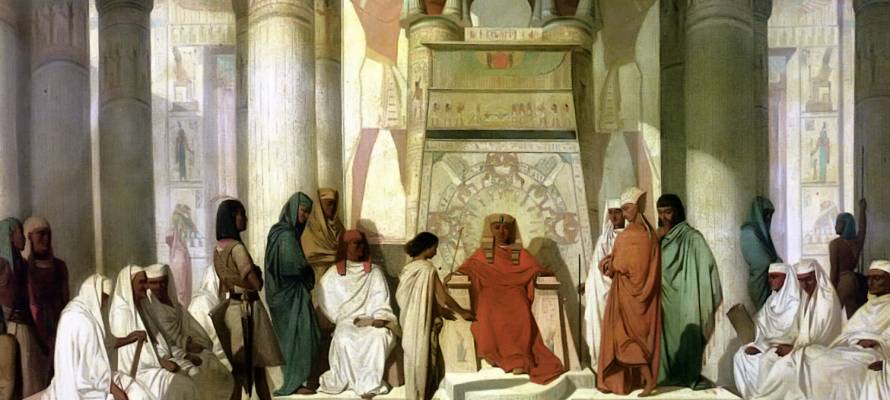Joseph’s high standard of dignity and integrity is something from which we could all learn. Fame and fortune did not corrupt him or allow him to go act the law.
In this week’s Torah portion of Vayigash (Gen. 44:18 – 47:27), we read that after Joseph revealed himself to his brothers, he sent them back to the Land of Israel to bring their father and the family to live in Egypt, where there was food. There was a famine everywhere else in the region, including in the land of Israel. Joseph knew that as the #2 man in Egypt, he had the ability to ensure that his family would be well taken care of and given enough food.
The question is asked: Why did Joseph decide to make his father and brothers leave their home and immigrate to Egypt? Immigration is never easy, especially when the destination society is so immoral and corrupt. It would have also been very hard for Jacob to move in his old age. Why didn’t Joseph just send food packages to his family in Canaan?
It is explained that Joseph indeed thought about doing that, but he then worried how such an “executive decision” would be received by the Egyptians. He was worried that he would be suspected of all kinds of irregularities and corruption were he to be seen shipping food out of Egypt. He would be accused of draining Egypt’s wealth and resources for his personal needs and interests. As such, he deiced that such an arrangement could not be made, and instead had his family move to Egypt.
Pharaoh, who at that time was a “good guy,” realized how careful Joseph was to maintain an impeccable reputation. Pharaoh realized that Joseph would not be able to send his family food. Not even as a one-time gift upon his reunification with his brothers. This is why it was Pharaoh who ordered the shipment of wagons laden with food to be sent with the brothers as they went to inform their father that Joseph was alive and that they would be moving to Egypt.
Joseph’s high standard of dignity and integrity is something from which we could all learn. It did not matter to Joseph that he was famous and universally credited with saving the Egyptian economy and the lives of his fellow Egyptian citizens. Although he could probably “get away” with sending one or more food shipments to his family, he wouldn’t hear of it. To him, rules are rules. And so it should be with us. Although it goes without saying that we must obey all laws and remain above suspicion, Joseph teaches us that not only must we obey the rules, but we also must be sure not to give an impression that we might be bending them for our own needs or interests. In other words, it’s not enough remain “clean.” We should ensure that we are “squeaky clean.”
By: Rabbi Ari Enkin, Rabbinic Director, United with Israel
For more insights by Rabbi Ari Enkin on this week’s Torah portion, click on the links below:
https://unitedwithisrael.org/living-torah-you-are-your-brothers-keeper/
https://unitedwithisrael.org/living-torah-an-important-lesson-in-etiquette/
https://unitedwithisrael.org/living-torah-what-makes-a-great-leader/
https://unitedwithisrael.org/joseph-role-model-of-sensitivity/
